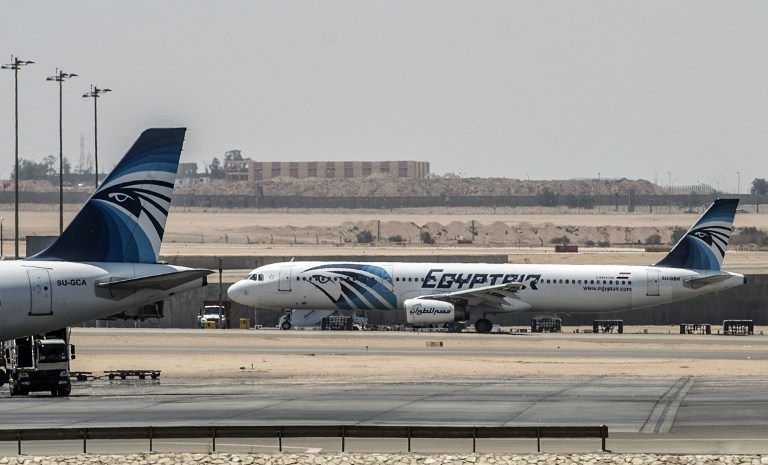EgyptAir flight detected smoke on board before crash: Investigators

The French aviation safety agency said on Saturday that the EgyptAir flight that crashed into the Mediterranean with 66 people aboard had transmitted automatic messages indicating smoke in the cabin.
Messages sent by the plane indicated that there was smoke in the cabin shortly before data transmissions with the flight broke off, a spokesman of France's Bureau of Investigations and Analysis told AFP.
The spokesman said it was "far too soon to interpret and understand the cause of Thursday's accident as long as we have not found the wreckage or the flight data recorders".
Philip Baum, the editor of Aviation Security International Magazine, told the BBC that the indications of smoke mean a technical failure could not be ruled out.
"There was smoke reported in the aircraft lavatory, then smoke in the avionics bay, and over a period of three minutes the aircraft's systems shut down," Baum was quoted as saying.
"That's starting to indicate that it probably wasn't a hijack, it probably wasn't a struggle in the cockpit, it's more likely a fire on board."
News of the smoke detection came as an Egyptian military released photos on Saturday of what a spokesman said was wreckage from the flight.
The Wall Street Journal, citing people familiar with the matter, earlier reported that automated warning messages indicated smoke in the nose of the aircraft and an apparent problem with the flight control system.
The warnings came about three minutes before air traffic controllers lost contact with the plane at 0029 GMT on Thursday, the Journal said.
The messages indicated intense smoke in the front portion of the plane, specifically the lavatory and the equipment compartment beneath the cockpit. The error warnings also indicated that the flight control computer malfunctioned, the report said.
On Friday, search teams found wreckage including seats and luggage about 290 kilometres north of Egypt's coastal city of Alexandria, Egypt's military said.
The plane disappeared without any distress signal between the Greek island of Karpathos and the Egyptian coast.
It had turned sharply twice in Egyptian airspace before plunging 6,700 meters and vanishing from radar screens, Greek Defence Minister Panos Kammenos has said.
Egypt's Aviation Minister Sherif Fathy said on Thursday that the crash was "most likely the result of a terrorist attack", but that it was too early to discount other possibilities, including technical failure.
New MEE newsletter: Jerusalem Dispatch
Sign up to get the latest insights and analysis on Israel-Palestine, alongside Turkey Unpacked and other MEE newsletters
Middle East Eye delivers independent and unrivalled coverage and analysis of the Middle East, North Africa and beyond. To learn more about republishing this content and the associated fees, please fill out this form. More about MEE can be found here.




